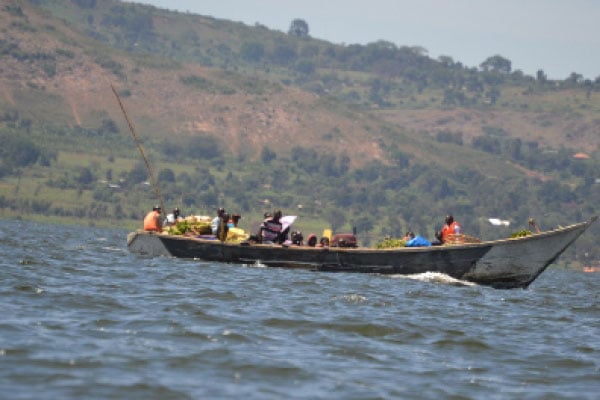Govt should improve rescue systems on water bodies

A passenger boat setting from Katosi landing site in Mukono District on July 5,2023. PHOTO/ DANIEL M SSENFUMA.
What you need to know:
- The issue: Deaths on water.
- Our view: Water users need to be more responsible and follow directives by officials. Don’t overload your boats. Always wear a life jacket when out in the water and avoid the waters when the weather is bad.
In August last year, at least 20 passengers perished in Lake Victoria after an overloaded boat transporting them from Kalangala District to Kasenyi capsized in rough waters at night.
According to preliminary police findings at the time, majority of the deceased were not wearing life jackets and the boat was overloaded. This prompted Works minister, Gen Katumba Wamala, to renew calls for all travellers on water to have the buoyancy jackets.
Last month, three people drowned after the boat they were travelling in capsized near Busabala Landing Site in Makindye Division, Kampala. According to police, the three who were transporting sand from Mukono Islands to Busabala, drowned in the lake in the afternoon of February 8 due to a heavy storm.
Sadly we hear episodes of people drowning in our waterbodies very so often. At least 3,500 Ugandans across 74 districts are reported to have drowned over a two–and–half–year period, according to a 2021 report by Makerere University’s School of Public Health. This translates into 1,400 deaths per year.
This week, weather experts issued a warning to water transport users about the risk of accidents as strong winds hit Lake Victoria. Navigating waters from March to August, they said, poses risk due to the prevalence of strong winds and waves. These conditions, often accompanied by heavy storms and lightning, heighten the danger for watercraft.
They mapped out areas around Kalangala District such as Mazinga, Kyamuswa, Bubeke, and Bufumira, along with parts of Bujumba Sub-county and Kalangala Town Council that are susceptible to strong winds.
The advisory by the Kalangala District disaster team to its locals could not have been timelier. They deserve an applause. Government should ensure this kind of sensitisation is carried out in all communities that live by the lakes and rivers. Locals need to know when it is most dangerous to be out on the water, and what to do in the event that one comes face to face with death while in the waters.
Overtime, the Uganda Police Force has strengthened the capacity of its marine unit. But we need to invest more in terms of personnel and equipment for them to be able to respond in a timelier manner to emergencies on water.
Finally, water users need to be more responsible and follow directives by officials. Don’t overload your boats. Always wear a life jacket when out in the water and avoid the waters when the weather is bad. Losing about 1,400 people per year is a lot. This is an average of four people drowning daily. We need to reverse this trend.



